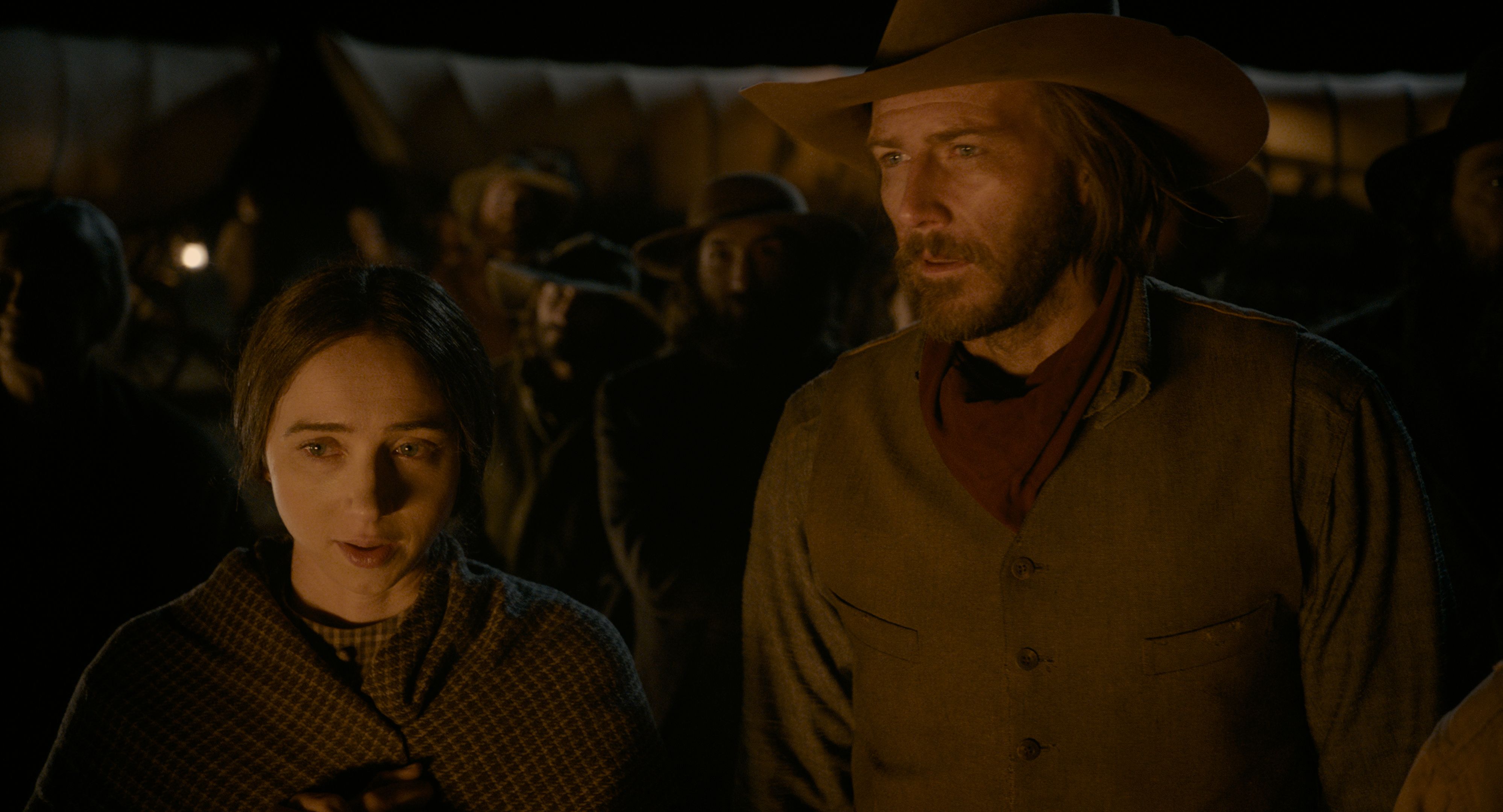Here they’ve crafted a movie that’s an embrace and critique of the chosen genre in all its varieties. It loves the tropes, and casts doubt on elisions and implications. The vision of the West articulated here is obviously fiction, attention drawn to the artifice of the frame. The stories are informed equally by John Ford and Roy Rogers, Ambrose Bierce and Jack London, Mark Twain and Washington Irving, with a splash of Poe and Dickinson for good measure. (The Coens remain among our most literary filmmakers.) It begins with a singin’ cowboy who is casually a mass murderer, and for that he cheerfully approaches life and death. The story’s bounce, and the Looney Tunes storybook staging to its visual gags, belies its seriousness of disjunction — drawing attention to the mixed messages chipper Westerns can send. The stories grow darker and more unsparing as the film proceeds, descending from its opening whistling carefree carnage to an ill-fated bank robber, then an increasingly-marginalized traveling orator, a stubborn process-focused prospector, a wagon train where a death causes some of its members to renegotiate their futures, and finally a cramped stagecoach with tense passengers. Because they could not stop for death, it kindly stops for them.
Peopled with a bevy of fine actors delivering performances perfectly calibrated to the film’s tricky tone — clever, comic, and arch, but with tragedy picking at the margins before roaring up with a wicked undertow — the memorable faces and voices carry the film’s intent. The likes of Tim Blake Nelson and James Franco float a little above the action; Zoe Kazan, Bill Heck, Tom Waits and Liam Neeson play things a little more straight; Tyne Daly and Brendan Gleeson are somewhere between. It's all of a piece with a film investing increasing dramatic stakes in the violence of survival. These and others fill out frames shot in the Coens’ rigorously playful visual style, Bruno Delbonnel’s crisp, digital lensing crafting an unusually vivid unreality to the environments, real and imagined. We are used to seeing the Hollywood Wild West of its heyday with a gauzy filmic nostalgia. Here it goes through the motions, but the unsparing digital finds new, harsher beauty. We’re never not aware this is a fiction, and yet on the strength of the literate scripting and clear-eyed performances, and the typically sharp Roderick Jaynes editing that goes where the brothers do, I got involved in the character’s predicaments, felt their fears and hopes, while still seeing the artifice of their construction, as well. The Coens know the pleasures of the Western, and the real pain and inevitable doom that meets these stories at the end. This isn't exactly a revisionist Western of the kind that sprang up in the genre's decline as darker and more explicitly and self-consciously tortured, but one that revives the old style for new purposes.



No comments:
Post a Comment